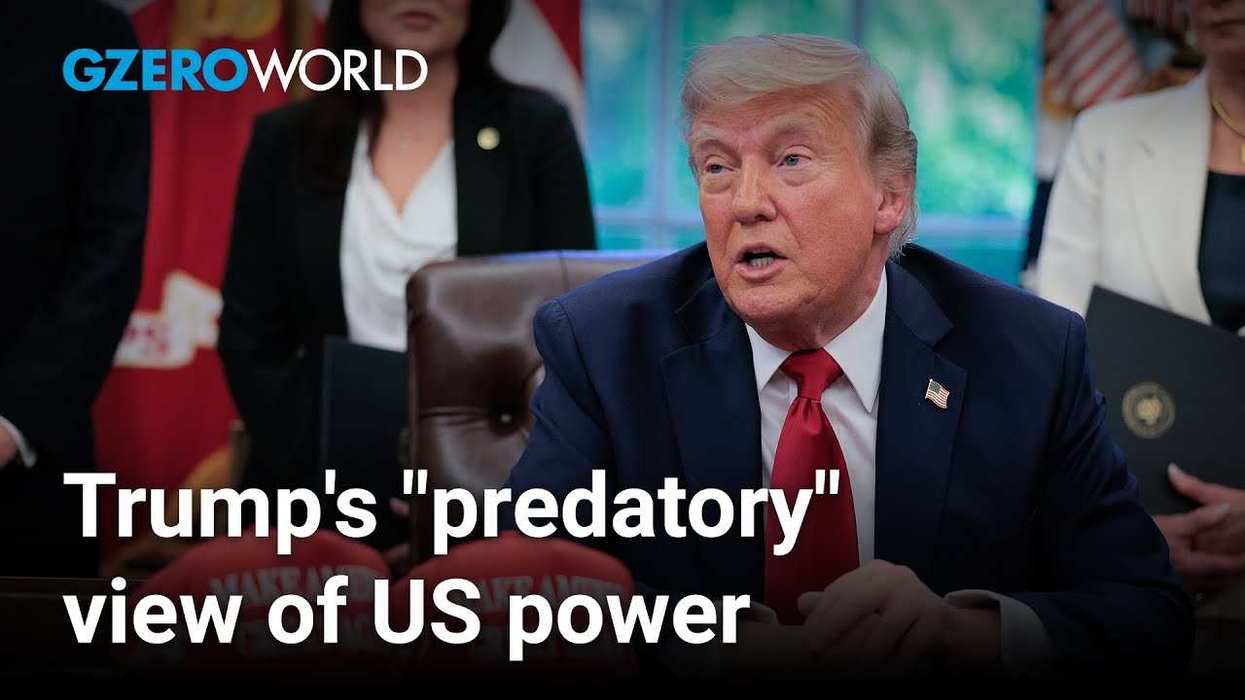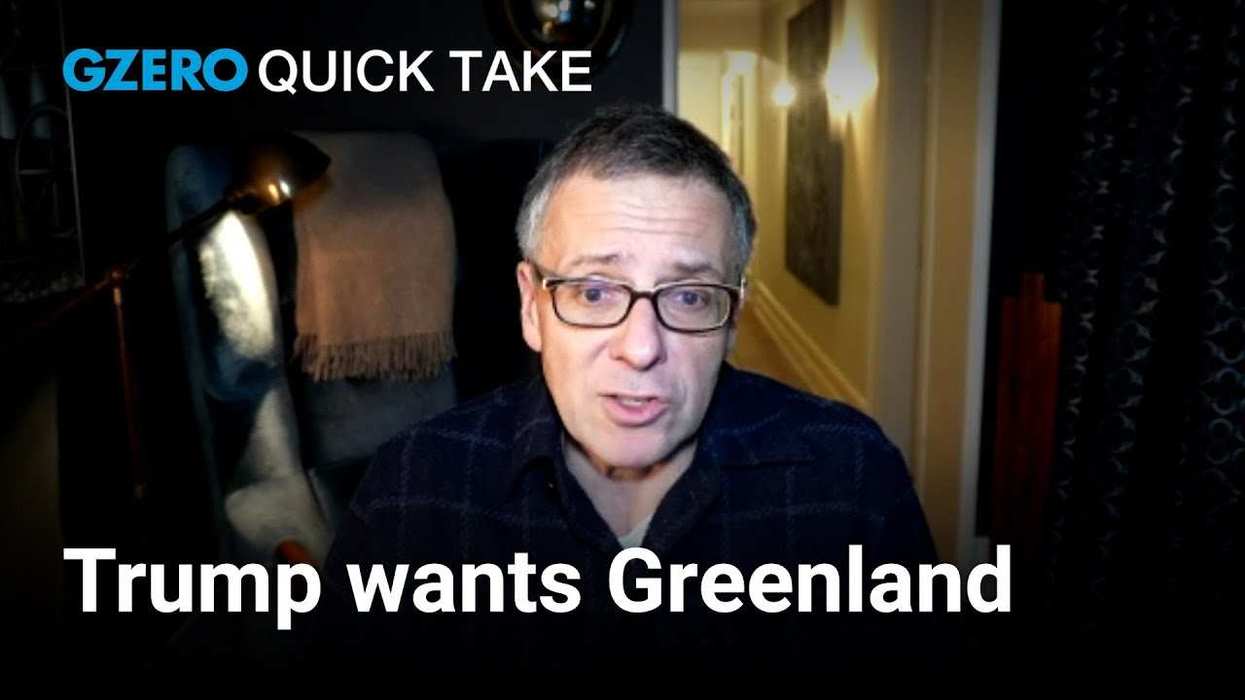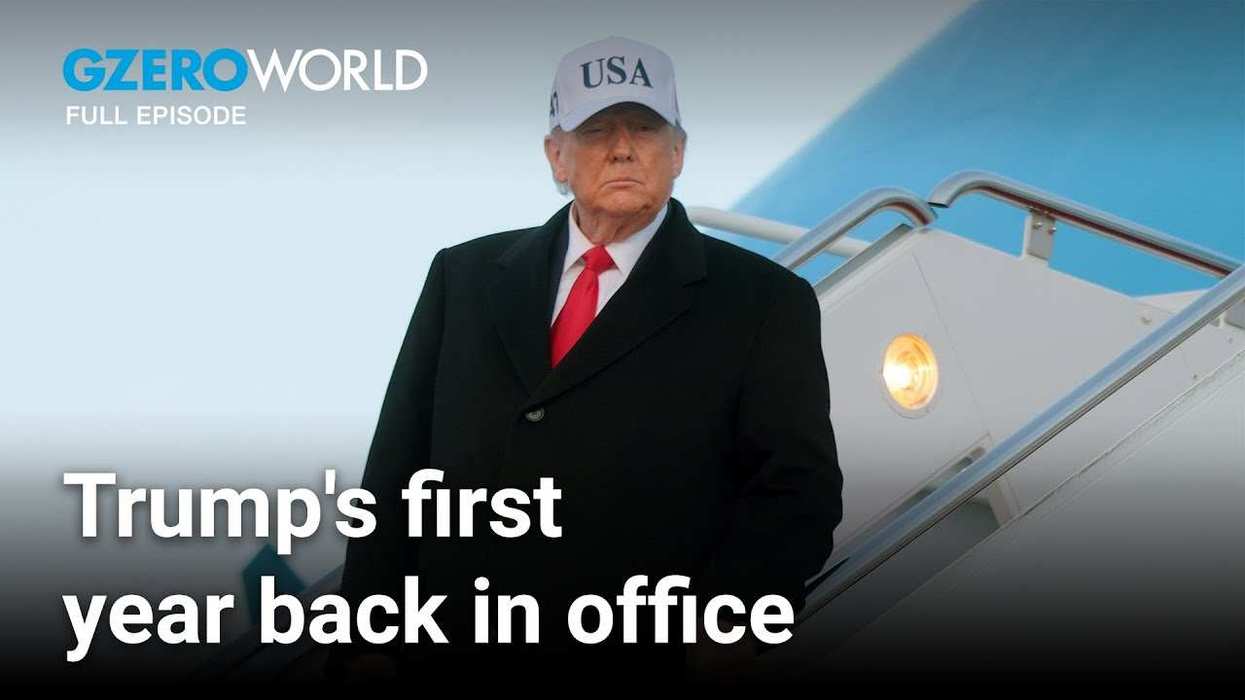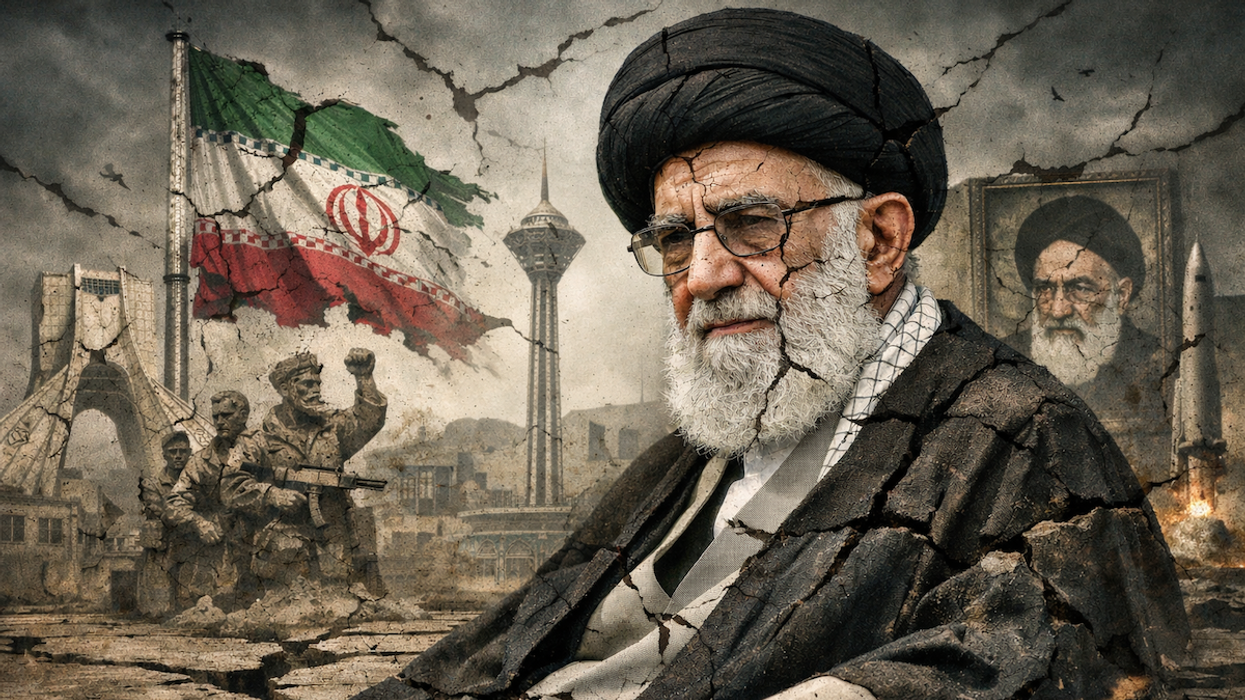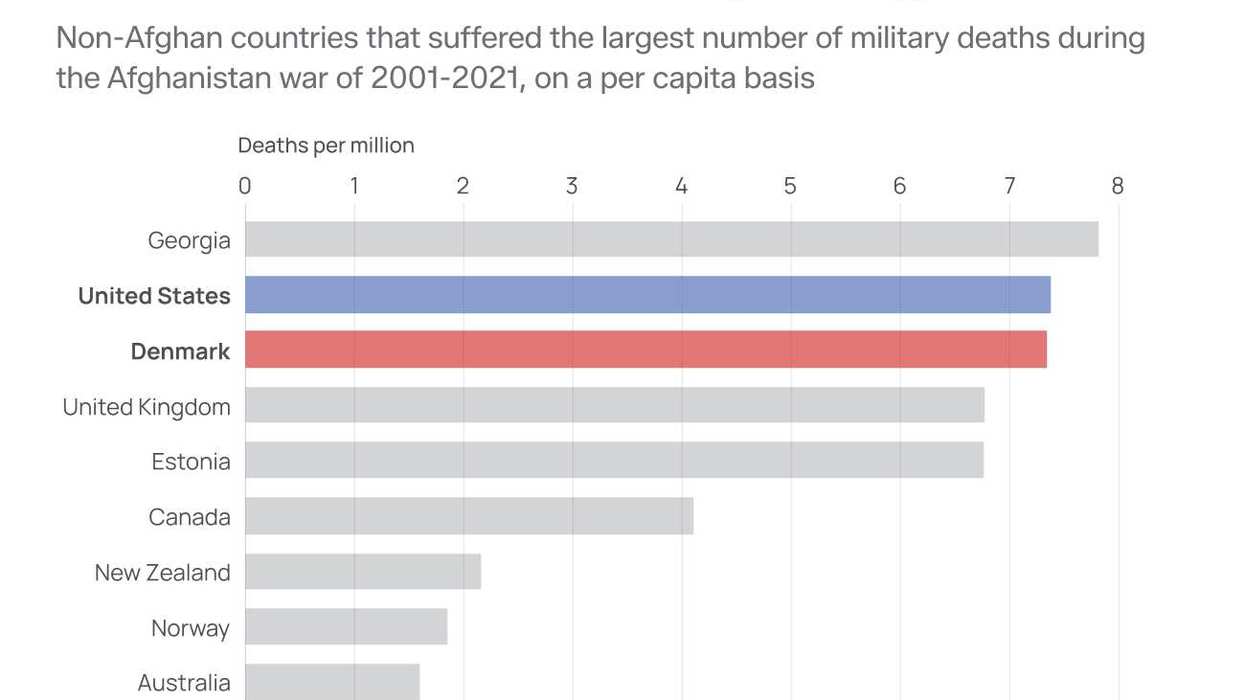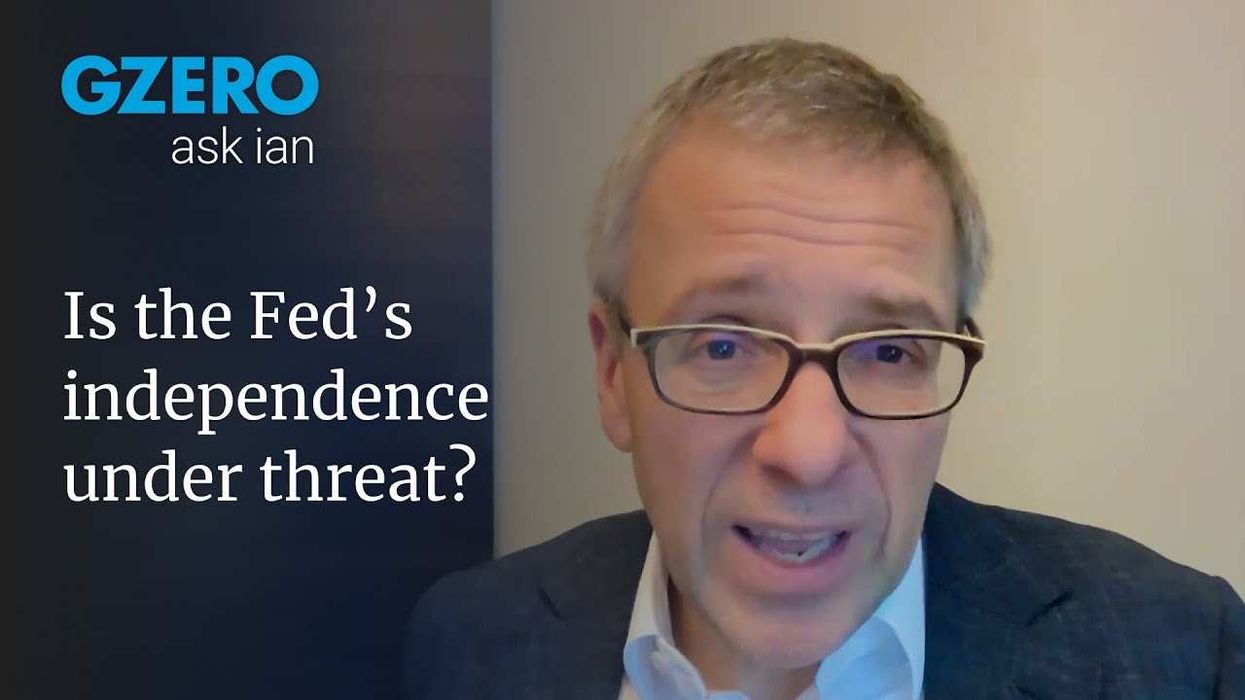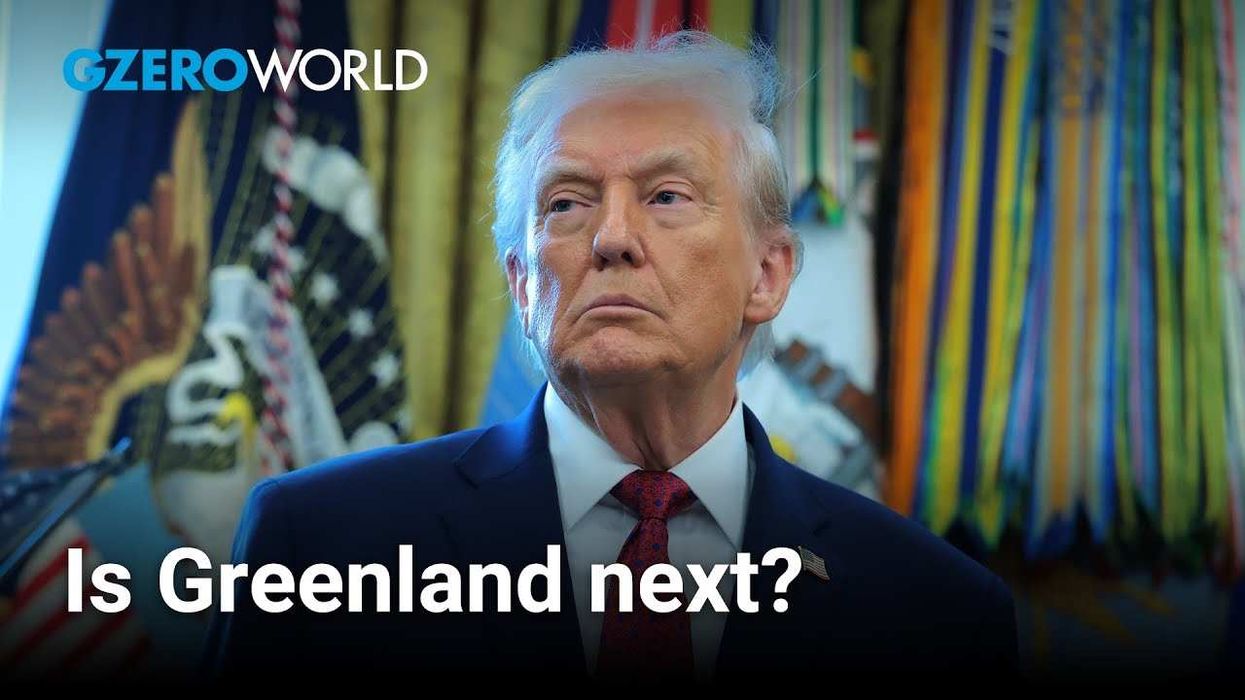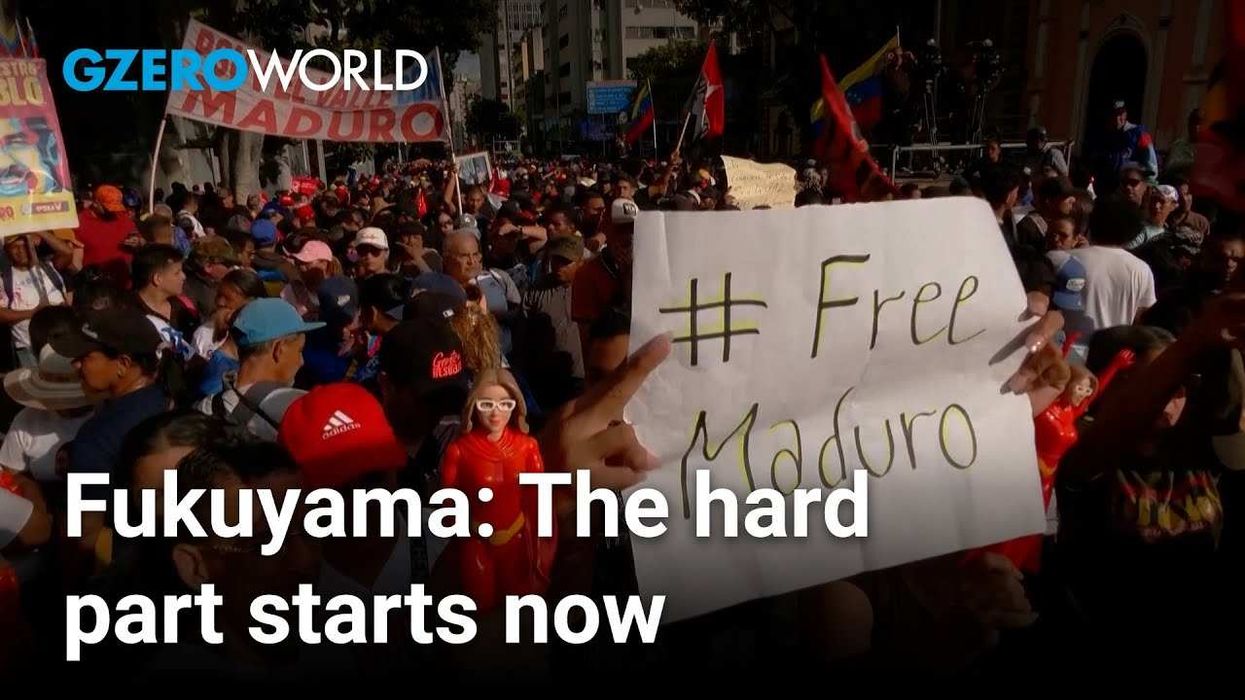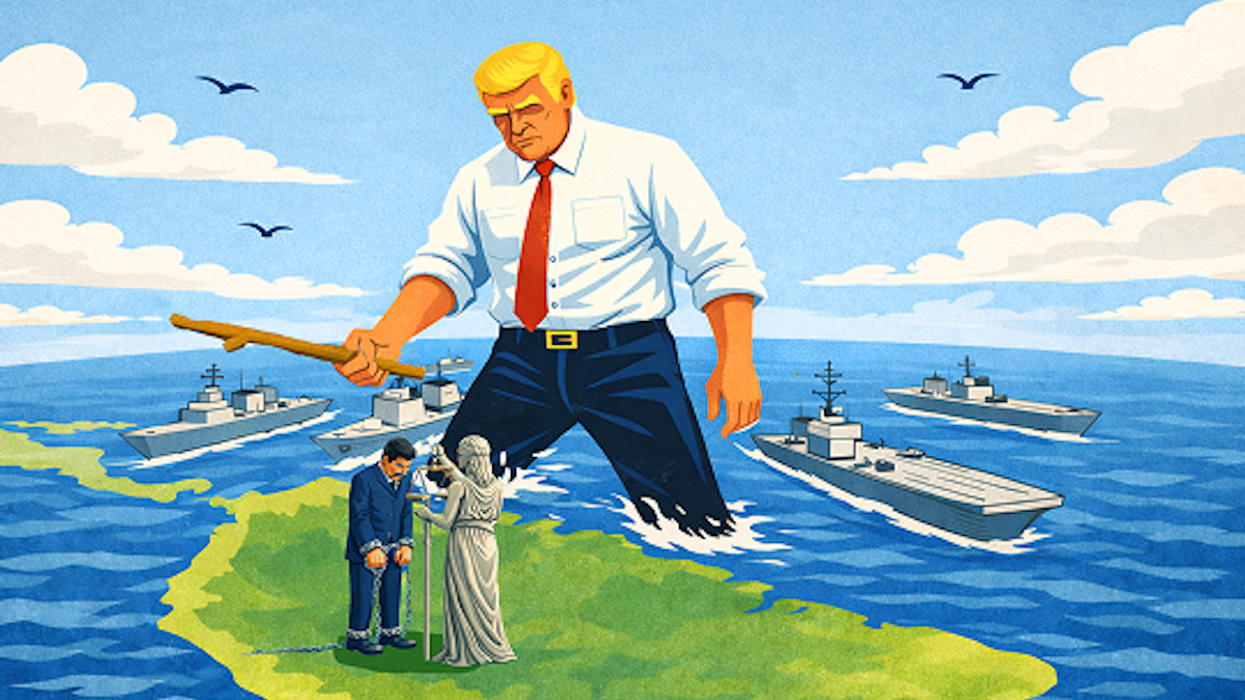For 20 years now, we've been warned about China's rise, America's decline, and the inevitable collision between the two superpowers.
That’s not what's happening today.
The bigger story of our G-Zero world, which I laid out during my “State of the World” speech in Tokyo on Monday, is that the United States – still the world’s most powerful nation – has chosen to walk away from the international system it built and led for three-quarters of a century. Not because it's weak. Not because it has to. But because it wants to.
From unpredictable to unreliable
There’s no historical precedent for this choice. Since the end of World War II, America's elected leaders have upheld a commitment to US leadership in a troubled world. In service of that goal, they’ve bolstered allies to make them stronger, more competitive, and more secure.
But American willingness to lead is now buckling under a politics of grievance. Citizens increasingly feel US institutions – and many of the nation's elected leaders – have failed to deliver on their promises and no longer represent them. For millions of voters, the social contract – the implicit promise that if you work hard and play by the rules, the system will reward you – has been broken. Trump is a symptom, a beneficiary, and an accelerant of this breakdown, but he didn’t cause it.
As Americans have lost faith in their own system, so they have turned inward: away from allies, collective security, free trade, global institutions, and international rule of law. This is the G-Zero world I’ve been writing about for years, a vacuum of global leadership that no one else is willing and able to fill.
It doesn’t help that America's allies have brought less to the table in recent decades. Europe, the UK, Canada, and Japan are lagging in productivity and growth, face weak demographics, and have chronically underinvested in defense and technological innovation. They're more dependent on Washington precisely when Americans want their government to do less globally.
Winston Churchill said you can always count on Americans to do the right thing – after they've exhausted all other options. The United States has always been unpredictable: in elections, in trade agreements, even in matters of war and peace. But it was rarely unreliable.
Today it is both. The United States remains committed to existing international norms, treaties, and agreements only insofar as they serve the interests of President Trump and his political allies. Governments sign deals only to have Washington unilaterally change the terms. Suspend intelligence-sharing overnight. Cut lifesaving foreign aid. Intervene in the domestic politics of friendly democracies. Threaten the territorial integrity of allies like Canada and Denmark. Impose the highest tariffs in nearly a century. Abandon countless global institutional commitments. The list goes on. America's unreliability has become the central driver of geopolitical uncertainty and instability in today's G-Zero world.
But unreliability is only half the story. To understand the scale of the problem – how deep it runs, how long it lasts, what can be done about it – you need to understand what’s currently happening inside the United States: a political revolution.
As a political scientist, I don't use the word "revolution" lightly. It implies a fundamental change in a country's governance – an attempt to overthrow what exists and replace it with something new. Whether motivated by ideology, identity, or wealth, a true revolution always depends on the ability and willingness of powerful actors to seize an opportunity created by a belief across society that the existing system is broken and therefore illegitimate. In this sense, revolutions are made, not born.
There have been two state revolutions with truly global impact in my lifetime.
The first was Mikhail Gorbachev's socialist revolution. The Soviet Union had long been losing ground in its Cold War competition with the United States. An out-of-touch party elite and sclerotic economic system struggled to sustain the state and fund an arms race Moscow looked destined to lose. To reverse Soviet stagnation, Gorbachev unleashed radical internal reforms: political openness (glasnost) to encourage competing ideas, economic restructuring (perestroika) to inject competitive market elements into the centrally planned economy, and self-accounting (khozraschyot) to devolve power from Moscow to the Soviet republics.
These reforms quickly undermined the foundations of the Soviet system. They enabled citizens, oligarchs, and nationalists to question the regime's legitimacy, creating widespread internal opposition and social dissent. The fall of the Berlin Wall and the Eastern Bloc accelerated the Kremlin's loss of control, and a nationalities revolution led to Soviet disintegration shortly after. Gorbachev's revolution failed, taking the Soviet Union with it.
The second revolution was Deng Xiaoping's economic modernization of China. In the late 1970s, the Chinese Communist Party leader responded to China’s underproductive, inefficient, and technologically stagnant socialist economy by transforming it from central planning to state capitalism: open to private enterprise, foreign investment, and trade.
Western governments eventually embraced Deng’s reforms, culminating in China's WTO admission in 2001. But the events in Tiananmen Square in 1989, the collapse of Eastern European communism, and the Soviet implosion all persuaded China's leaders that political reform was too dangerous. The Party's monopoly on power became non-negotiable, and it remains so to this day.
Still, Deng's economic revolution was a spectacular success. China lifted hundreds of millions out of poverty, sustained nearly 10% annual growth for two generations, and became a middle-income economy of 1.4 billion that currently leads the world in many frontier technologies.
Trump's political revolution
And now we turn to Washington. Is it right to call what's happening inside the United States a revolution? It's early to say for sure, but increasingly I believe the answer is yes.
The president of the United States says the greatest threat to America is posed not by Beijing or Moscow or terrorists. The true enemies, he warns, are members of the opposite political party: its supporters, its fundraisers, and even its voters. President Trump believes his return to power allows – demands! – the end of political checks and balances on his executive authority.
There's not much economic revolution here. Yes, Trump has imposed the highest tariffs since the 1930s. Yes, he's trying to undermine the Federal Reserve's independence. And yes, he's dabbling in state capitalism – golden shares in US Steel, a 10% stake in Intel, a 15% cut of certain Nvidia and AMD chip sales. But these are ad hoc moves, marginal decisions in the context of the broader US economy. They’re not doctrine.
Trump picks winners and losers to demonstrate power, to reward loyalty, to extract rents. There's no structural transformation of how markets operate or the way the private sector engages with (and often captures) the regulatory system. There’s no strategic restructuring of capital. In fact, President Trump has abandoned his signature promise from 2016: "drain the swamp." Corruption and self-dealing aren't an economic revolution. They're business as usual in America's increasingly broken capitalist system … just more permitted now.
But a political revolution is another matter. President Trump is consolidating executive authority by pushing the boundaries of the law. He’s usurping powers traditionally left to Congress, the courts, and the states. He’s tried to undermine his political opposition to ensure they no longer pose a challenge to him and his allies. In part, this is Donald Trump's transactional approach to power. But it's also political retribution – a form of revenge on those whom Trump believes did, or tried to do, the same to him.
President Trump has accused the Biden administration of weaponizing the Department of Justice to imprison him and of promoting a "cancel culture" approach to right-wing speech, including by deplatforming Trump himself from social media after the January 6 Capitol riots.
Trump says the left in America has demonized him and his allies as "fascists" in ways that promote political violence, and he can point to two attempts to assassinate him during last year's election campaign as well as the recent murder of conservative activist Charlie Kirk to make his point.
The president's choices have wide-ranging and lasting implications. Inside the United States, the president has won the total loyalty of the Republican Party and the reliable support of Republican lawmakers for his revisionist legislative and executive agendas.
He has begun a sweeping purge of America's professional bureaucracy – which Trump and his supporters call the "Administrative State" – and replaced career civil servants with political appointees who are personally loyal to the president. He has weaponized the "power ministries" – the FBI, the Justice Department, the Internal Revenue Service, and many regulatory agencies – against his domestic political adversaries. And he has secured executive impunity from the rulings of an independent but no longer coequal judiciary.
In short, President Trump is replacing the rule of law with the rule of Don at home, much like he’s embracing the law of the jungle – where the strong do what they can and the weak suffer what they must – internationally.
Unlike the Gorbachev and Deng revolutions, Trump's revolution follows no grand strategic plan. Instead, it's a relentless pressure campaign to test the limits of what can be done on every political front – a commitment to act opportunistically as the crises these policies create open new possibilities to consolidate ever more power. This plan was launched by targeting those of Trump’s opponents who are most vulnerable and least organized, such as undocumented immigrants, green card holders, transgender people, and elite universities. The administration has since moved into the broader political categories of funders, supporters, and enablers of his political opponents. All of this is being undertaken with the intention of normalizing behaviors that have long been politically taboo.
Will Trump’s revolution succeed?
How much more can President Trump accomplish before next year's midterms or by Election Day 2028?
Partially, it's a matter of degree. The United States already has a structural bias toward Republicans because of the Electoral College system through which presidents are elected. A candidate can win the popular vote but lose the presidency thanks to the demographic and geographic distribution of electors, which confers a roughly 2-percentage-point advantage to Republican candidates. Add aggressive gerrymandering – with both parties rigging district maps – and elections become even less representative, less competitive, less legitimate.
More concerning is the possibility of President Trump deploying the National Guard in Democratic cities under the guise of a declared "national emergency" to suppress voter turnout. Federal probes into Democratic fundraising and organizations already underway add to these pressures, making these tactics increasingly plausible – and the election is still more than a year away.
To be clear, I'm not suggesting Trump runs for a third term or suspends elections. The Supreme Court would block both moves. But uncompetitive elections? Elections that look more like a single-party system than a competitive representative democracy? With the broader checks on presidential power now in question, that's increasingly plausible.
Trump's grip on the Republican Party and the Democratic Party's current divisions mean the legislature functions less independently from the executive. Even if Democrats retake majority control of the House of Representatives (a Senate flip is very unlikely), they’ll have no power to enforce subpoenas or force a defiant executive branch to cooperate with their oversight efforts.
America's judiciary remains independent, but its power now pales in comparison to that of the executive. The Supreme Court, aware that Trump could refuse to comply with decisions he dislikes, regularly limits the scope of its rulings to preserve its own institutional legitimacy. Though lower courts aren't as restrained, their decisions can be and often are overturned, giving Trump more leeway to consolidate authority.
The media, constrained by profit-driven corporate owners, faces pressure from above to avoid antagonizing the White House. Social media is increasingly controlled by Trump's political allies (more so when the TikTok sale goes through) and, in the case of Truth Social, by Trump himself.
There are still US institutions that can check the president's power. The military stands as a bastion of professionalism – Secretary of Defense Pete Hegseth's blind loyalty to the president notwithstanding – because its culture continues to prioritize service to the nation over loyalty to any individual. The Pentagon's purges of some high-level military officers have made headlines, but not like China's last week – and they don't undermine the military's core operational integrity.
The devolution of political power to states and cities also offers a buffer. Many US governors and mayors are competent technocrats who govern independently of Washington. Trump's attempts to weaken Democratic national powers don't threaten state and city-level governance.
Corporate and financial leaders, uncomfortable with political upheaval, tend to avoid political confrontation that could jeopardize their interests and those of their shareholders. Most will focus on regulatory influence instead.
And then there are the American people themselves. More than five million Americans turned out in thousands of "No Kings Day" protests across the country this weekend, the largest demonstrations since the Vietnam War. President Trump is a historically polarizing and unpopular president. But then again, so is the 2025 Democratic Party.
Remember: Trump was freely and fairly elected in large part because he embodied the political and cultural disruption that a plurality of voters craved. Most Americans who said they cared about democracy in 2024 voted for, not against, Trump, precisely because they were convinced the system was already broken and only he offered hope for change.
The fate of Trump's political revolution is uncertain, but on current trends, a constitutional crisis before the next elections looks increasingly likely. Possible outcomes range from a Republican break with Trump to a sustained political shift toward single-party rule in the United States. Nor can we rule out the kind of political chaos, realignment, and violence that America saw in the decades after the Civil War.
One thing I know for sure: the United States is not going back to the political culture that held sway a decade ago, before Donald Trump descended the Trump Tower escalator. The sooner the world accepts that, the sooner it can figure out how to respond and adapt to a post-American order. More on this next week.




